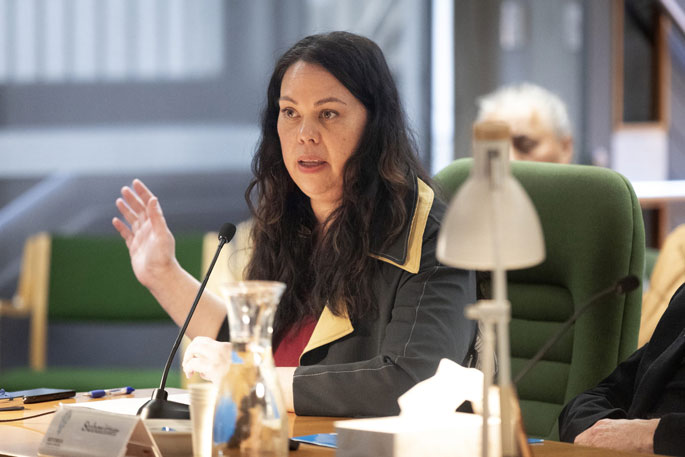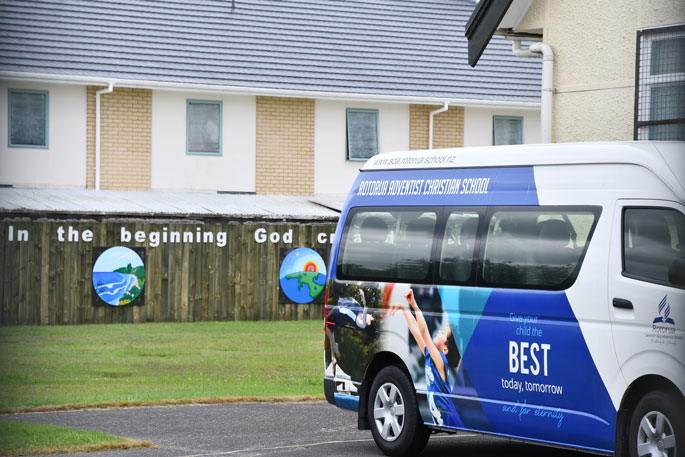Human poo, used sanitary pads and fears for children’s privacy are some of the reasons Rotorua’s “smallest school” is pleading for neighbouring properties to not be allowed to build up.
Rotorua Lakes Council’s Plan Change 9 proposed changes to support intensification by enabling medium-density living across most of the urban area, and high-density living in and near the city centre and commercial centres.
The proposed standards enable up to three homes of up to three storeys on most residential sites without requiring resource consent. In some cases, homes up to six storeys high could be built.
Forty-nine submitters are scheduled to speak to their submissions over six days before an independent panel of commissioners, chaired by David Hill.
There were 272 submissions in total.
Opinion varied, with some saying it would make for better environmental outcomes and more housing opportunities, but others worried about the shading from taller buildings and privacy.
Among them was the Rotorua Seventh-day Adventist School Board, with representatives speaking to its submission on Thursday, August 17.
The board’s submission sought for the proposal to be amended, saying it had concerns for the privacy of vulnerable children.
It asked that properties surrounding the school be prohibited from building up to three storeys.
To support this, it used similar arguments and examples to those school leaders raised during last year’s emergency housing resource consent hearings.
Property manager Roger Marshall said the school earlier this year celebrated 70 years of operating.
“We were operating in Rotorua before motels were.”
Then emergency housing moved into the neighbourhood.
Fenton Court Motel, which is used for emergency housing, sat close to the fence line of the school.
“We’ve had to contend with damage to our property a number of times,” Marshall said.
“Also, rubbish thrown on to our property from tenants from second-story windows. Dog faeces, used sanitary pads etc.
Not something primary school students need to discover on their playground.”
Photographs of these were shown to panellists.
There was an incident where a man stood at an “open upper window in his underpants with his hand in them”.
“If three-story heights are permitted adjacent to our school we do not know who will buy or build next to our school.”
He said more than 60 incidents had been recorded since emergency housing came to motels around the school, and he worried that if the nearby properties were not excluded from the plan change proposals it would mean more of the same.
“It will not be temporary but a permanent issue and our school will be impacted further.”
 Rotorua Seventh Day Adventist School principal Lanea Strickland. Photo / Andrew Warner.
Rotorua Seventh Day Adventist School principal Lanea Strickland. Photo / Andrew Warner.
Principal Lanea Strickland said it is the city’s “smallest school” with two classrooms. She had worked there for twenty years.
She outlined its submission on last year’s emergency housing resource consents, which included how 12 of the incidents were classified as “high risk”.
Her concerns included possible long-term viewing of students on the property by residents that the school would have no knowledge of.
Children had been sworn at from neighbouring motel windows, including telling them to: “Keep it down you bloody *************” and “haha, you bloody [racial slur]”.
She said the litter in the playground included human poo and drug paraphernalia and a neighbour began helping to clear the area before children arrived.
A photograph depicting a shirtless man appearing to face the playground was also shown to the panel. The motel next door had since spray-painted the windows over, but Strickland did not believe that would stop someone from scraping a hole to look.
David Hill said “to state the obvious”, regardless of what happened through Plan Change 9, nothing would change for the school until someone wanted to do something to one of the neighbouring buildings.
“It doesn’t change the existing situation one iota does it.”
The hearing will finish next Tuesday.
The panel will make recommendations to the council after the hearing, and if there were no changes to what was proposed it could be operative by March next year.
Public Interest Journalism funded through NZ On Air.




0 comments
Leave a Comment
You must be logged in to make a comment.